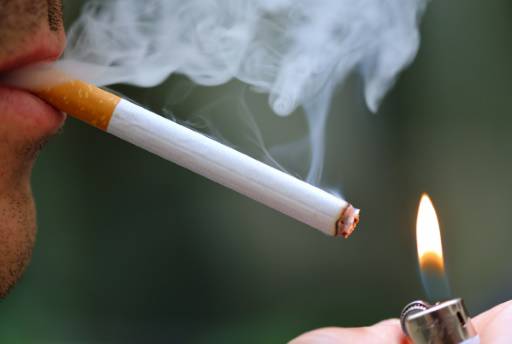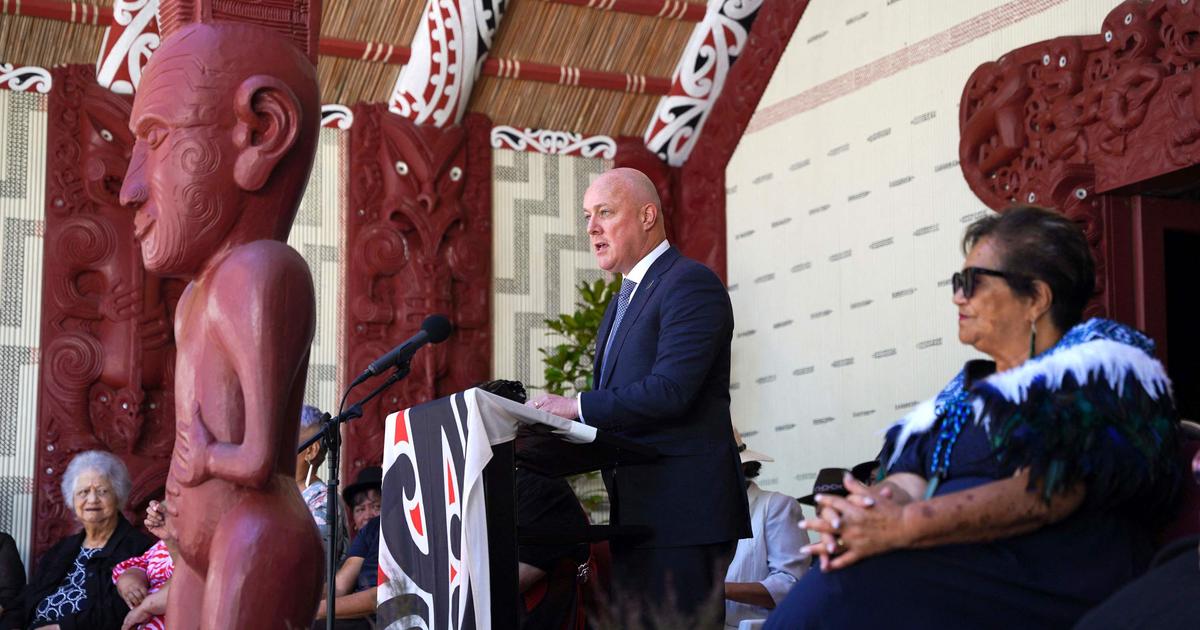After being a global model in the fight against the coronavirus, New Zealand could be the first nation without tobacco users.
Or at least very little.
The country has just opened a consultation of its population for six weeks, until May 31, as part of a major action plan to create a tobacco-free generation by 2025. This broad program, which aims to Objective of less than 5% of smokers within four years, plans in particular to prohibit the sale of tobacco to all the people born from January 1, 2004. And this, for all their life.
The objective is thus not to "create new smokers". “It is a very beautiful project based on scientific studies, with politically courageous measures. We rarely start smoking after 25 years, the age of entry into smoking is rather in adolescence and young adults. It's really important to target young people, ”considers Karine Gallopel-Morvan, professor of social marketing at the School of Advanced Studies in Public Health, whose Rennes campus was the first in France without tobacco.
In the fern country of 5 million people, tobacco kills 4,500 people each year, or 12 per day, whether they are consumers or passive smokers.
According to the plan of the Ministry of Health, cigarettes cause one in four cancer deaths.
The Maori population and the working classes would be particularly affected.
“It is mainly foreign workers and the working classes that I see smoking, the Kiwis smoke little.
There is never a butt on the ground, ”observes Melvyn, French expatriate in New Zealand for 18 months.
A territory favorable to such measures
Indeed, according to several connoisseurs of this nation, this plan has every chance of success.
“To carry out such a policy, you have to have favorable circumstances.
The country has only 10% of its population who smoke (17% in 2007), against 30% in France where tobacco kills one in two smokers.
They have already greatly reduced this share thanks to restrictive measures, ”recalls Emmanuelle Beguinot, director of the National Committee for the Fight against Smoking (CNCT).
In Aotearoa, New Zealand's name in the Maori language, tobacco packets are already sold in plain packets, with prevention messages like “smoking harms fertility”.
As in France, the prices of packets are constantly rising to reach 20 euros for 20 cigarettes or 35 euros for a bag of roll-your-own tobacco.
READ ALSO>
Tobacco: why the French still smoke so much
“There are also bar terraces, streets, parks where you cannot smoke.
There are areas planned for that, but even there, I would say that it is frowned upon.
We don't feel comfortable smoking, ”says Melvyn, 26, who works to collect kiwis.
"We can also not smoke in ski resorts," adds Juliette, Varoise expatriate since 2018. Result, on her arrival on the islands, this smoker in France had moved away from nicotine for several months.
“We are much less encouraged to smoke since few people smoke around us.
I have resumed but I smoke less than in France.
It's much more difficult to start here, ”analyzes the young Frenchwoman.
What do you think about a smokefree generation policy?
Have your say in the consultation proposals for a Smokefree Aotearoa 2025 Action Plan: https://t.co/0puALiuNvs pic.twitter.com/f83zaJPMBf
- Ministry of Health - Manatū Hauora (@minhealthnz) April 14, 2021
The effect of the famous “moment of sharing around a cigarette” invoked by smokers is thus reduced.
"And then seeing as they check every purchase of alcohol with your identity card to verify that you are over 25, I have no doubt that it will be the same with tobacco," says Melvyn.
Like Australia and Finland, which are considering similar tobacco control measures, "the acceptability of this policy is very strong there," adds the professor at the School of Advanced Studies in Public Health, who discussed the project with a New Zealand colleague. "It is certain that these measures will be respected and applied," confirms Melvyn. On the ground, Charlène, who lived two years on the spot, was marked "by a country turned towards the well-being, with an awareness much more advanced than in France". According to a study, 77% of current smokers surveyed tried to quit or cut down on their smoking.
However, some detractors fear the emergence of a black market in tobacco, "already on the rise" according to the government.
This seems inconceivable for expatriates "who have never seen one".
"They have the advantage of being islands with a lot of controls from the authorities," recalls Bernard Basset, president of the Addictions France association, formerly the National Association for the Prevention of Alcoholology and Addictology (ANPAA).
We have seen the effect in France when the borders were closed during the first confinement, which led to an explosion in sales in mainland France to the detriment of parallel networks.
"
A ban on the sale, but not only
The government's smokers-free generation project does not stop at this strong measure for those born after 2004. The objective is also to reduce the proportion of “historical smokers”.
For this, the plan also provides for a reduction in the number of points of sale, from 8,000 to 400, for example by granting licenses.
Not to mention the ban on scented balls present in the filters, which give an "impression of better taste to tobacco" and pollute.
Lower nicotine levels (as envisioned in the United States) and all “innovations aimed at increasing attractiveness and addiction” are also targeted.
READ ALSO>
Rate of nicotine and tar: tobacco manufacturers "have not stopped lying"
All this arsenal will be accompanied by help to the 500,000 smokers to quit through drugs, nicotine replacement therapy. For this, the advent of the electronic cigarette, as on the whole planet, could be used as a substitute with, according to the Ministry of Health, “a much reduced risk on health”.
"This can make it possible to quit smoking but young people must not start vaping, even if there is less danger for the moment," recalls the boss of Addictions France.
An opening door also for tobacco manufacturers, "who have become manufacturers of nicotine that can be found in e-cigarettes".
"These industrialists, struck by such a policy, could initiate legal proceedings", fears Karine Gallopel-Morvan, the professor of social marketing.
Whatever happens, these drastic measures and the reactions will be scrutinized in France.
The freedom of decision of adults is already invoked by opponents, as is the future of the thousands of businesses that sold tobacco.



/cloudfront-eu-central-1.images.arcpublishing.com/prisa/MUZAD6ZH7FE53M2E2YXOBV5XHU.jpg)


/cloudfront-eu-central-1.images.arcpublishing.com/prisa/USPGW4YAYJFFPIEU4G5GZEUJ4Q.jpg)
/cloudfront-eu-central-1.images.arcpublishing.com/prisa/JH6CB54NDYS2LXHYMZABZ5MCUI.jpg)







